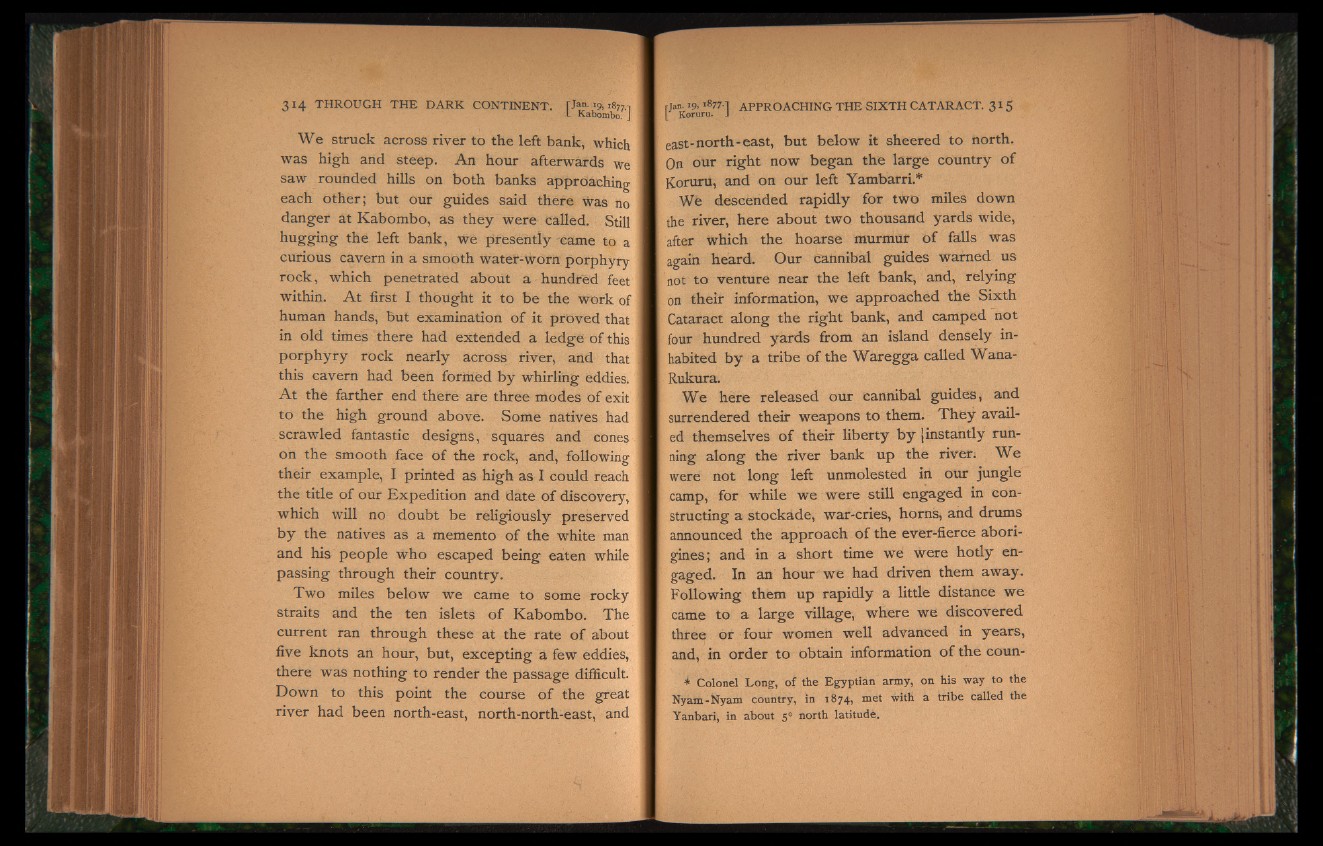
We struck across river to the left bank, which
was high and steep. An hour afterwards we
saw rounded hills on both banks approaching
each other; but our guides said there was no
danger at Kabombo, as they were called. Still
hugging the left bank, we presently 'came to a
curious cavern in a smooth water-worn porphyry
rock, which penetrated about a hundred feet
within. At first I thought it to be the work of
human hands, but examination of it proved that
in old times there had extended a ledge of this
porphyry rock nearly across river, and that
this cavern had been formed by whirling eddies.
At the farther end there are three modes of exit
to the high ground above. Some natives had
scrawled fantastic designs, squares and cones
on the smooth face of the rock, and, following
their example, I printed as high as I could reach
the title of our Expedition and date of discovery,
which will no doubt be religiously preserved
by the natives as a memento of the white man
and his people who escaped being eaten while
passing through their country.
Two miles below we came to some rocky
straits and the ten islets of Kabombo. The
current ran through these at the rate of about
five knots an hour, but, excepting a few eddies,
there was nothing to render the passage difficult.
Down to this point the course of the great
river had been north-east, north-north-east, and
rjan. 19. l877-l APPROACHING THE SIXTH CATARACT. 315
[ Koruru. J
e a s t -north-east, but below it sheered to north.
On our right now began the large country of
Koruru, and on our left Yambarri.*
We descended rapidly for two miles down
the river, here about two thousand yards wide,
after which the hoarse murmur of falls was
again heard. Our cannibal guides warned us
not to venture near the left bank, and, relying
on their information, we approached the Sixth
Cataract along the right bank, and camped not
four hundred yards from an island densely inhabited
by a tribe of the Waregga called Wana-
Rukura.
We here released our cannibal guides, and
surrendered theif weapons to them. They availed
themselves of their liberty by {instantly running
along the river bank up the river. We
were not long left unmolested in our jungle
camp, for while we were still engaged in constructing
a stockade, war-cries, horns, and drums
announced the approach of the ever-fierce aborigines;
and in a short time we were hotly engaged.
In an hour we had driven them away.
Following them up rapidly a little distance we
came to a large village, where we discovered
three or four women well advanced in years,
and, in order to obtain information of the coun-
* Colonel Long, of the Egyptian army, on his way to the
Nyam-Nyam country, in i$74> with a tribe called the
Yanbari, in about 50 north latitude.